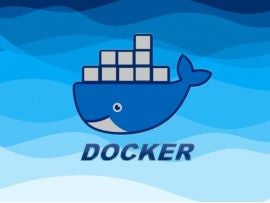Check out our comprehensive list of top 6 DevOps certifications for 2023 and find the best certification to enhance your skills and knowledge in the field.
By fusing software development and IT operations, the DevOps methodology shortens the development lifecycle and helps teams continuously and quickly deliver high-quality software. As this highly beneficial methodology grows in popularity, so does the need for skilled DevOps professionals.
Besides real-world experience, one of the best ways to acquire and display such skills is through DevOps certifications. This guide will feature some of the best DevOps certifications for developers and professionals looking to advance in this lucrative and ever-growing field so you can get the recognition, position, financial compensation and job security you desire.
Jump to:
IBM DevOps and Software Engineering Professional Certificate
If you are looking for a beginner-level certification with no prior experience required to get you on the path to a career as a DevOps software engineer, then look no further than the IBM DevOps and Software Engineering Professional Certificate.
This DevOps certification can give you the hands-on experience and in-demand skills you need to be ready to hit the workforce in as little as four months. No college degree or programming experience is required. All you need is basic IT and computer literacy, plus the ability to dedicate ten hours per week at your own pace to earn this DevOps certification.
The IBM DevOps and Software Engineering Professional Certificate prepares you for a DevOps engineering career that is lucrative and in high demand. Once you complete the DevOps certification, you can eventually qualify and compete for in-demand job titles such as junior software engineer, junior DevOps engineer, DevOps engineer and junior cloud-native software engineer.
The DevOps certification consists of 14 courses, beginning with Introduction to DevOps and moving on to others such as Introduction to Agile Development and Scrum, Getting Started with Git and GitHub, Introduction to Containers with Docker, Kubernetes and OpenShift, Continuous Integration and Continuous Delivery (CI/CD), Application Security and Monitoring and more. The final course involves a hands-on Capstone project that lets you showcase your software engineering and DevOps skills to earn your certificate.
Docker Certified Associate (DCA)

Knowing how to configure and manage containers is necessary if you hope to work in DevOps.
One of the most widely used container runtime platforms is Docker, which is why the Docker Certified Associate (DCA) certification is crucial for many looking to begin or advance their careers as DevOps engineers.
The DCA exam validates your Docker skills via real-world questions carefully crafted by seasoned Docker practitioners. Becoming a Docker Certified Associate gives you an industry-recognized credential on your resume that can be used to get a job as a DevOps engineer or move up the ladder where you currently are. Ideal candidates for this DevOps certification include those working with the Docker platform, DevOps engineers and software engineers.
Benefits of taking and passing the DCA exam include an official credential that can attract recognition for your Docker skills and a digital certificate with the Docker Certified Associate logo. Potential employers can verify your Docker Certified status online, and you will also gain access to the Docker Certified professional network, which can open the door to several employment opportunities.
Prerequisites for the DCA DevOps certification are six to twelve months of Docker experience. The exam costs $195, and results are delivered immediately.
Certified Kubernetes Administrator (CKA)
Certified Kubernetes Administrator is one of the best certifications for DevOps because it sharpens skills with one of the most popular open-source container-based platforms. Many DevOps professionals use Kubernetes to manage services and workloads and automate deployment. Get the CKA certification, and you can do the same as you steadily acquire the skills and experience necessary to have a lengthy DevOps career.
The CKA certification is ideal for Kubernetes administrators, cloud administrators and other IT professionals in charge of managing Kubernetes instances. You should have a fundamental understanding of Kubernetes before enrolling in the DevOps certification. Complete the two-hour online exam, and you will show your current organization or potential employers that you have the competency, knowledge and skills needed to perform the duties of a Kubernetes administrator.
The cost of the CKA exam is $395, which includes one complimentary retake. You will have to solve problems in a command line covering the following topics: Workloads and scheduling, installation and configuration of cluster architecture, services and networking, troubleshooting, and storage.
Puppet Certified Professional
Puppet is a popular system management tool that helps over 40,000 organizations worldwide automate and manage their server configurations so they can quickly execute infrastructure changes and produce higher-quality software. IT professionals and DevOps engineers can use the Puppet Certified Professional certification to showcase real-world experience and technical skills with the automation software.
Enrollees in this DevOps certification are encouraged to have prior knowledge of Puppet. If you are new to the automation software, complete the Getting Started with Puppet and Puppet Practitioner courses before enrolling.
It costs $200 to get one of the best DevOps certifications and become a Puppet Certified Professional. The exam will test you on Puppet concepts, orchestration and tasks, administration, language, classification strategies, environments, module authoring and troubleshooting code.
AWS Certified DevOps Engineer – Professional
Many consider Amazon Web Services (AWS) the top cloud computing platform. As such, it is no surprise that the AWS Certified DevOps Engineer – Professional certification is one of the credentials employers look for most from potential job applicants. Having this DevOps certification on your resume shows you have the skills and knowledge to provision, operate and manage distributed application systems on the Amazon Web Services platform. It can give you more credibility and confidence with your colleagues, customers and stakeholders. And if an organization hires you, they can feel confident knowing they have a DevOps professional on staff to ensure the fast delivery of scalable, highly available, secure, and compliant systems.
Widely regarded as one of the best certifications for DevOps, AWS Certified DevOps Engineer – Professional is geared towards applicants with at least two years of experience working with AWS environments. Other recommended prerequisites include experience administering operating systems, building automated infrastructures or coding in a high-level programming language, plus an understanding of the most up-to-date operations and development methodologies and processes and more.
Earning the DevOps certification involves passing the AWS Certified DevOps Engineer – Professional exam. The multiple choice/response exam, which you have 180 minutes to complete, consists of 75 questions and costs $300.
Microsoft Certified: DevOps Engineer Expert
DevOps engineers play a critical role in helping organizations deliver continuous value.
These infrastructure administrators or developers have experience working with processes, products and people. They typically find themselves as part of cross-functional teams that include Azure administrators, developers and site reliability engineers.
As a DevOps engineer, you can assume a wide range of responsibilities, such as designing and implementing strategies for infrastructure, continuous integration, code, collaboration, source control, testing, delivery, monitoring, feedback, security and compliance. If all of that sounds attractive and you would like to become a DevOps engineer or further your career as one, then the Microsoft Certified: DevOps Engineer Expert may be a goal worth setting your sights on.
Prerequisites for the DevOps certification begin with familiarity with GitHub and Azure DevOps. You should also have experience with Azure administration and development and have at least one of these certifications: Microsoft Certified: Azure Administrator Associate or Microsoft Certified: Azure Developer Associate.
To become a Microsoft Certified: DevOps Engineer Expert, you must pass Exam AZ-400: Designing and Implementing Microsoft DevOps Solutions. It costs $165 and tests you on various technical tasks like designing and implementing source control, configuring processes and communications, designing and implementing build and release pipelines, implementing an instrumentation strategy, and developing a security and compliance plan.
What to Look for in DevOps Certifications
Consider your career goals and employer demand when looking for the best DevOps certification. The best DevOps certifications come from reputable organizations, offer hands-on experience and are taught by high-quality instructors with relevant teaching credentials and industry experience.
Pay close attention to the content and curriculum. The DevOps certification should align with the skills and topics you want to learn and be up-to-date. If you have a busy schedule, search for a DevOps certification that is self-paced and offered online. Look at the cost to ensure it fits your budget, and read online reviews to ensure it is a worthy investment. Lastly, check the prerequisites to ensure you have the knowledge and experience to pursue the DevOps certification.
Final Thoughts on the Best Certifications for DevOps
The list above features some of the best certifications for DevOps available. Before choosing a DevOps certification, make sure you meet the prerequisites and that it fits your schedule, career goals and budget. Once you get your first DevOps certification, do not stop; the more you acquire, the more your career can advance.
Source of Article



